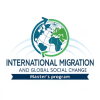
Silvia Fierăscu
PhD
The course "Network Analysis in Migration" introduces students to the use of network science as a powerful method for understanding migration dynamics. We explore how people, institutions, policies, and places are interconnected across borders, and how these networks shape migration patterns, opportunities, risks, and outcomes. Students learn to map and analyze complex social, economic, and institutional networks, using real-world data and case studies. The course combines hands-on methodological training with critical discussions on migration governance, integration, transnationalism, and inequality—equipping students with analytical tools to investigate the global circulation of people and ideas.
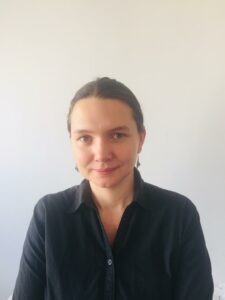
Leyla Safta-Zecheria
PhD
Leyla Safta-Zecheria is a pedagogist and an anthropologist. She is a senior lecturer at the Educational Sciences Department, West University of Timișoara (Romania) and a research affiliate of the Inequalities and Democracy Workgroup at the Democracy Institute at Central European University Budapest/Vienna (Hungary/Austria). She holds a PhD in Political Science from Central European University Budapest and an MA in European Ethnology from Humboldt University Berlin. She has held research fellowships at the Institut fur die Wissenschaften vom Menschen (IWM/Vienna), the New Europe College Bucharest, the Universidad Federal de Sao Carlos (Sao Paulo/ Brazil) and the University of Toronto. In her current research, she uses qualitative, visual and participatory methods to understand the ways in which instances of social, economic and educational inequality are lived through and described by marginalized people, as well as how these instances come to be constructed socially and epistemologically.

Melinda Dincă
PhD
The course "Global Market Networks and Labour Migration" presents the main types of migration, conceptually defines the causes and social effects of migration, and enhances our understanding of how the integration needs of migrants in the labour market differ depending on the social, political, and economic context of their communities of origin and destination. Therefore, we will discuss domestic migration, as well as temporary and permanent international migration, managed migration, and the individuals involved in the migration process, including immigrants, emigrants, the children and elderly left behind in their homeland, legal and undocumented migrants, diaspora, asylum seekers, and refugees. Furthermore, the course will analyse real-life cases in which communities affected by migration adapt to its effects, such as depopulation, remittances, homesickness, social solidarity, social disparities, population ageing, the loss of the working-age population, and labour attraction, among others. The learning and development of master's students' skills occurs through experiential methods, incorporating real-life cases into the classroom, fostering collaboration within student teams, and leveraging support from teachers and local experts from the communities and regions from which the case studies are derived.
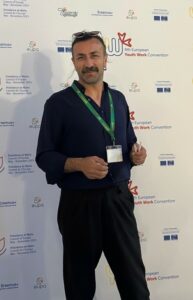
Ömer Temizkan
Dr.
The course "Migration, Memory & Politics: Unpacking the Turkish Context" aims to examine issues related to migration and refugees in depth, using Turkey as a critical and dynamic focal point. Going beyond superficial narratives, it aims to discuss migration dynamics in the Middle East in a cause-and-effect context, addressing the powerful interactions between forced displacement, social acceptance, collective memory, and political power structures. Participants will examine Turkey's unique position as a historically migratory country and currently an important host country and transit route, gaining an understanding of the complex social, political, and cultural dimensions of contemporary migration crises. We will critically examine the experiences of refugees and migrants in Turkish society. This includes topics such as overcoming integration challenges, encountering different cultural landscapes, facing bureaucratic obstacles, and forming new communities and identities in the process of displacement and dignified return. The course will examine Turkey's migration and refugee policies, creating up a space for discussion on the effects of these policies at the European and global levels. By examining the concrete social consequences of migration and related policies, we will discuss the fundamental power dynamics, national interests, international obligations, and internal political conflicts that shape them within the framework of political sociology. One of the features of this course that raises awareness in migration studies is the relationship it establishes between migration and collective memory. We examine how societies remember their shared past, traumas, and victories, how social and cultural memory deeply influences collective attitudes toward newcomers, how it shapes national narratives about identity and borders, and how it impacts political debates. Therefore, within the scope of the course, we will examine the processes of remembrance within refugee and migrant communities. We will look at how they maintain their ties to their lost homelands, how they transmit narratives of trauma and resilience across generations, how they reconstruct cultural practices, and how they negotiate new identities in the host society. This focus reveals how memory functions as a fundamental resource and arena of struggle in the contexts of displacement and integration. Methodologically, this course emphasizes experiential learning and will utilize a dynamic set of pedagogical tools. Through simulations and reflection sessions, participants will have the opportunity to engage in in-depth discussions of theoretical frameworks and empirical research. The use of the shoulder-level communication model (you-me language) will contribute to a participatory, non-judgmental, and open-minded discourse. Collaborative group work will facilitate the exchange of knowledge and different perspectives. Key Themes Explored: * Refugees and Migrants in the Context of Turkey * Critical Analysis of Turkey's Migration and Asylum Policies * Integration Processes and Social Challenges * Social Memory, Cultural Memory, and Collective Identity * Displacement, Trauma, and Remembering the Homeland * The Sociology of Migration: Power, Sovereignty, and Governance * Identity Formation and Negotiations of Belonging * The Role of Memory in Policy Making and Social Cohesion Ideal for: This course is designed for participants who are interested in sociology, political science, international relations, migration studies, educational studies, cultural studies, and human rights, and who seek a sophisticated, grounded, and critical understanding of contemporary migration. This course is particularly important for those interested in Turkey's unique dynamics as a key actor in global migration flows, and for those seeking to explore the fundamental yet often overlooked roles that social memory, cultural memory, and political power structures play in shaping every aspect of the migration experience—from policy corridors to the daily lives of displaced individuals and host communities.

Hajer ARAISSIA
Dr.
The course “Patterns of Mobility and Social Change in the Maghreb“ explores the historical and contemporary dynamics of human mobility in the Maghreb (Morocco, Algeria, and Tunisia) through the lens of social transformation and demographic change. It focuses on how patterns of migration have not only shaped population movements but have also deeply influenced family structures, urbanization, gender roles, and generational relations. Migration is examined as a key driver of socio-demographic shifts, particularly in terms of population redistribution (rural-to-urban migration, international mobility), age and sex composition of households, fertility patterns, and the emergence of transnational family models. These demographic processes are contextualized within broader historical and political frameworks, including colonial legacies, post-colonial state building, and global labor market changes. The course begins with an analysis of pre-colonial and colonial mobility, including nomadic traditions and trans-Saharan trade routes, followed by the large-scale labor migrations organized under colonial rule. It then turns to the post-independence period, characterized by mass emigration to Europe, the rise of family reunification, and the formation of diaspora communities that remain deeply connected to their countries of origin through remittances, circular migration, and social remittances. Particular attention is given to the demographic implications of these patterns: - The youth bulge and its link to migration aspirations. - Gender-selective migration and its effects on fertility and household roles. - Urban demographic pressures due to internal migration. - Population aging and the role of migration in elder care and intergenerational support. Students will engage with interdisciplinary sources from migration studies, historical demography, and sociology, using case studies and policy analysis to understand the reciprocal relationship between mobility and social/demographic change. By the end of the course, students will be able to critically analyze how migration interacts with key demographic trends and social transformations in the Maghreb, and how these interactions contribute to shaping both local societies and transnational spaces.

Mara Birou
Junior Researcher
Mara Birou is a junior researcher at the Centre for the Study of Transnational Families, Babeș-Bolyai University. Her work focuses on migration from multiple perspectives, including integration, welfare policies, social behavior, and trust. She is actively involved in several research projects, with a particular emphasis on qualitative methodologies. Mara has extensive experience conducting interviews with diverse groups across a wide range of research topics.
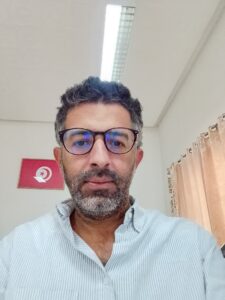
Foued Ghorbali
Assistant Professor
Assistant Professor of Sociology at the University of Gafsa, Tunisia. His research focuses on urban margins, informal economies, youth mobility, and the political sociology of post-revolutionary Tunisia. He has conducted extensive fieldwork on irregular neighborhoods, illicit alcohol trade, and the everyday strategies of marginalized populations in Tunisian cities. His current work explores the intersections between migration, race, and populist discourses in North Africa, particularly in the context of trans-Saharan migration and European border externalization. He has published in both academic journals and public platforms such as Assafir Al-Arabi, and he actively collaborates with international research networks and development institutions. He is also engaged in developing sociological resource centers for students and researchers in southern Tunisia. The course Borders, Mobility, and Power: A Sociological Perspective on African Migration toward Europe provides a critical sociological introduction to migration dynamics from North Africa and Sub-Saharan Africa towards Europe. It seeks to equip students with analytical tools to understand how mobility across the Mediterranean is shaped by global inequalities, historical legacies, and contemporary political transformations. The course adopts a South-North perspective, paying particular attention to how migration flows from Africa intersect with European border regimes and the socio-political consequences within transit and host societies. We begin by examining North African migration to Europe, highlighting the historical ties shaped by colonialism, labor migration, and post-colonial mobility agreements. Since the Arab uprisings of 2011, political instability, economic precarity, and changing aspirations have driven significant numbers of North Africans, particularly from Tunisia and Morocco, to seek new opportunities in Europe. The Mediterranean, however, has increasingly become a securitized space, where European states externalize their borders and negotiate migration control with countries like Tunisia and Libya. Through the analysis of Frontex operations, bilateral agreements, and the rise of ‘buffer zones’, we discuss how Europe has turned its peripheries into zones of containment. The second focus is on Sub-Saharan African migration, particularly through the Maghreb as a transit or destination zone. The growing presence of Sub-Saharan migrants in countries like Tunisia has provoked ambivalent and often hostile responses. On one hand, these migrants are victims of precarious journeys and systemic violence; on the other, their visibility has become a site of political controversy. In Tunisia, recent populist discourses—framed by both state actors and segments of civil society—have racialized the presence of Sub-Saharan migrants, framing them as a demographic and cultural threat. These discourses are entangled with broader anxieties about national identity, sovereignty, and socio-economic crisis. We will explore how such racialized representations are embedded in longer histories of racial capitalism, Euro-Mediterranean hierarchies, and the reproduction of border violence. Drawing on works by Didier Fassin, Achille Mbembe, and postcolonial theorists, we critically assess how the moral economies of hospitality and exclusion operate. The course will also analyze the European Union’s instrumentalization of migration policies, including the Team Europe external funding mechanism, and how these policies reshape the domestic political landscapes of countries like Tunisia. By the end of the course, students will be able to understand the structural factors driving African migration, the role of borders in reproducing global inequalities, and the local political effects of migration, especially concerning race, security, and citizenship in the Euro-Mediterranean space. Course Plan Week 1 – North African Migration and the European Border Regime Historical trajectories of migration from North Africa EU policies: Frontex, visa regimes, externalization Tunisia and Morocco as buffer states Documentary screening and debate (e.g., Mediterranea, Jonas Carpignano) Week 2 – Sub-Saharan Migration, Race, and the Politics of Exclusion Transit migration and the Maghreb as space of containment Racism and populism in Tunisia: the 2023 anti-migrant discourse Intersection of migration, race, and local political economies Comparative debate: Hospitality vs. Security logic Keywords Migration governance, Sub-Saharan migrants, securitization, Tunisia, racialization, Frontex, postcolonial critique, Euro-Mediterranean relations, border regimes Indicative Bibliography Fassin, Didier (2011). Humanitarian Reason: A Moral History of the Present. University of California Press. Mbembe, Achille (2017). Critique of Black Reason. Duke University Press. De Genova, Nicholas (2017). The Borders of “Europe”: Autonomy of Migration, Tactics of Bordering. Duke University Press. Bennafla, Karine (2011). “Migrations en Afrique du Nord: entre transit et installation”, Revue Tiers Monde, n° 208. El Qadim, Nora (2014). “Le gouvernement asymétrique des migrations. Maroc/Union européenne”, Critique internationale, n° 64. Cuttitta, Paolo (2018). “Delocalization of Border Control to Africa”, The Journal of Postcolonial Writing, 54(1). Lahlou, Mehdi (2020). “Tunisia: Between Transit Country and Immigration Host”, Migration Policy Institute. Heller, Charles & Pezzani, Lorenzo (2019). Liquid Traces: Investigating the Deaths of Migrants at the EU’s Maritime Frontier.

James W. Scott
Professor (Karelian Institute)
The course "Borders, Security and Migration" will offer an introduction to borders as a field of research in which questions relating to migration and security play a central role. The study of how borders are defined, configured and managed provides a key to the critical analysis of border politics that conflate the mobility of migrants and asylum seekers with risks to national societies. The overall approach is interdisciplinary but there is a specific focus on social geographies of borders and sociological approaches. The course aims to provide students an opportunity to investigate state borders and their impact on the achievement of human security goals understood as promoting overall well-being, development opportunities and physical protection. Students will be motivated to read and discuss key works that have characterised the state of the art and to contribute their own insights into politically charged debates related to the purpose and function of borders. Within this context we will discuss questions of community belonging, citizenship, and the relative openness of borders. As such, the course bridges theoretical perspectives to practical and policy aspects of borders. While Europe is the primary geographical focus, examples from other parts of the world will serve to broaden comparative discussion. In the seminar we will use selected texts as well as non-academic information sources in the discussion of borders and security both as political issues and socio-political concepts. Core Readings (Selection) • Almustafa, M. (2022). Reframing refugee crisis: A “European crisis of migration” or a “crisis of protection”? Environment and Planning C: Politics and Space, 40(5), 1064–1082. https://doi.org/10.1177/2399654421989705. • Calvi, L. and Tejedor, S. (2022) Borders as the ultimate (de)Fence of Identity: an ontological security approach to exclusionary populism in Italy and Spain. KOME, 10 (1): 1-18. doi:10.17646/KOME.75672.83 • Casaglia, A. et al. (2020) Interventions on European nationalist populism and bordering in time of emergencies. Political Geography, 82, 102238. https://doi.org/10.1016/j.polgeo.2020.102238 • Heyman, J. (2024) Borders: Exclude or Relate? Journal on Migration and Human Security, 12(3), 321-331. https://doi.org/10.1177/23315024241259765 • Kolossov, V. and Scott, J. W. (2013) Selected conceptual issues in border studies, Belgeo 1 2013, DOI: https://doi.org/10.4000/belgeo.10532 • Mogiani, M. (2022) Studying Borders from the Border: Reflections on the Concept of Borders as Meeting Points. Geopolitics, 28(3), 1323–1341. https://doi.org/10.1080/14650045.2022.2026329 • Pallister-Wilkins, P. (2022) Humanitarian Borders, London: Verso, Chapter 2, Pp. 19-52. • Steele, B. J. and Homolar, A. (2019) Ontological insecurities and the politics of contemporary populism, Cambridge Review of International Affairs, 32:3, 214-221, DOI: 10.1080/09557571.2019.1596612 • Vezzoli, S. How do borders influence migration? Insights from open and closed border regimes in the three Guianas. CMS 9, 9 (2021). https://doi.org/10.1186/s40878-020-002
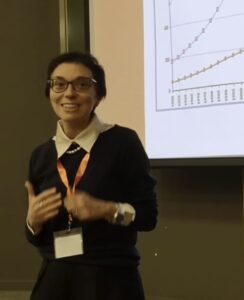
Roberta Ricucci
Professor
Aim of the the course “The migration in the current years. The European perspective” is to understand the current migration flows and the European debate on international mobility and integration paths, presenting crucial topics connected to migration and its governance. It will cover the main issues dealing with the debate on migrants’ welcoming and insertion in the host societies in current times, effecting by the so-called “Mediterranean human rights crisis” started in 2015 and still ongoing: e.g. the role and impact of cultural diversity in the host societies and in the various societal domains, how Western societies are coping with religious requests emerging from immigrant groups, to what extent children differ from their parents in managing religious identities. Empirical research studied in this course draws substantially from European contexts, but also extensively uses cases from societies across all the Western societies. The comparative perspective will be transversal to all topics, including exercises of policy transferability from one context to another of policy tools. Example of reading list: Bonino, S., & Ricucci, R., Islam and the West, chap. 1 & 12 (Palgrave, 2020; open access). Kertzer, D., “The Perils of Reification: Identity Categories and Identity Construction in Migration Research”, in Decimo, F. & Gribaldo, (eds.), Boundaries within: Nation, Kinship and Identity among Migrants and Minorities, Springer, 2016, pp. 23-34. Ricucci, R., Ethnicity, Identity and Faith in the Current Migratory Crisis (Springer, 2021). Triandafyllidou, A, From Eastern Enlargement to Jihad: The Double Challenge for Migrant Integration in Europe" (EUI, 2017, section 1&2, open access).

Rodica Crudu
PhD, Associate Professor
The course “Patterns of Mobility and Social Change in Eastern Europe” examines how different forms of mobility—international migration, internal migration, circular migration, and cross-border commuting—have shaped and continue to reshape social, economic, and political landscapes in Eastern Europe. Anchored in the region’s post-socialist transformation and European integration processes, the course explores the complex interplay between mobility patterns and social change, including demographic shifts, labor market restructuring, cultural reconfigurations, and political responses. It offers students both theoretical grounding and empirical case studies to critically analyze mobility as both a driver and consequence of social change in the region. Course Objectives: By the end of the course, students will be able to: · Identify key types and trajectories of mobility in Eastern Europe; · Analyze the relationship between migration and social, political, and economic transformations; · Understand the role of EU integration and visa liberalization in shaping mobility patterns; · Assess the impact of emigration and remittances on origin countries; · Evaluate national and regional policy responses to mobility trends.
Ioan Cosmin Constantin
Mobility Officer at the European Labour Authority (ELA)
Ioan Cosmin Constantin is a highly experienced labour law and mobility expert, currently serving as a Labour Mobility Officer at the European Labour Authority (ELA) in Slovakia. With over 15 years of experience in labour inspection, EU mobility policy, and international cooperation, he has played a key role in organizing and supporting cross-border inspections, developing practical tools for enforcement, and delivering training initiatives in collaboration with EU agencies such as CEPOL, FRA, and OSCE. Prior to his current role, Ioan-Cosmin served as National Liaison Officer for Romania, where he facilitated institutional engagement with ELA, coordinated joint actions with Europol and other Member States, and contributed to strategic forums like the Undeclared Work Platform and the Senior Labour Inspectors Committee. His earlier career at the Romanian Labour Inspectorate included leading inspection planning, international missions, and EU-level negotiations during Romania’s Presidency of the Council of the EU. Ioan-Cosmin holds academic degrees in Law, Human Resource Management, and Sociology & Psychology, and has completed specialized training in areas such as trafficking in human beings, conflict management, and EU project management. He is fluent in English and Romanian and brings a strong commitment to promoting fair and effective labour mobility across Europe. The course examines EU rules on free movement within Member States, focusing on the posting of workers and the challenges faced by migrants, including exploitation. It combines legal insights with practical case studies to highlight enforcement and cooperation efforts across the EU. (TBD)

Anatolie Coșciug
Dr. Researcher
Dr. Anatolie Coșciug works as a Researcher at West University of Timișoara and co-director of the Center for Comparative Migration Studies, interested in the migration to and from Romania and other related phenomena. Anatolie published in major migration-studies outlets, and he is involved in research, consultancy, and training projects with various universities, international organizations, and public institutions. He hosts the Across Border Podcast and co-founded the ReMap Network.
